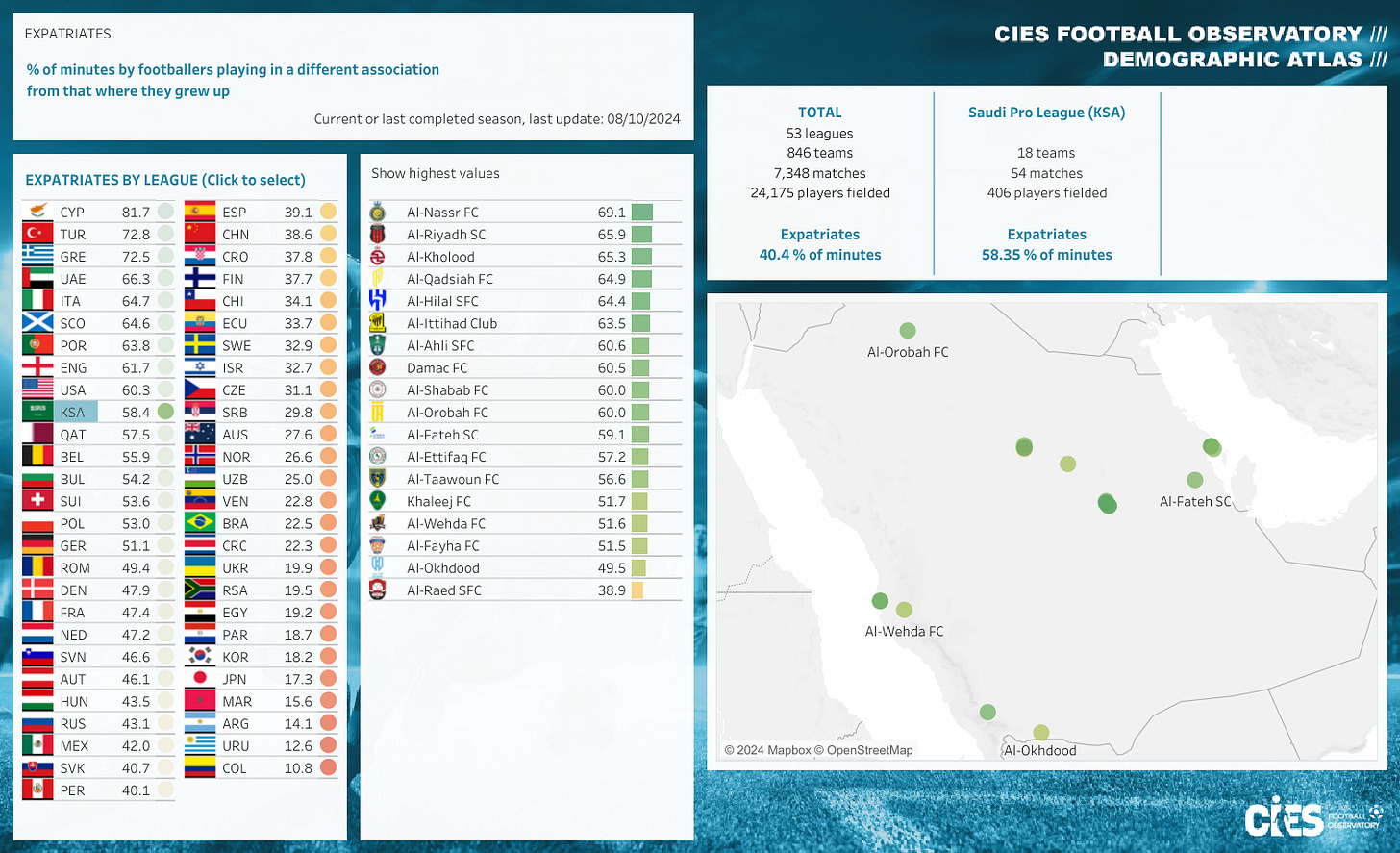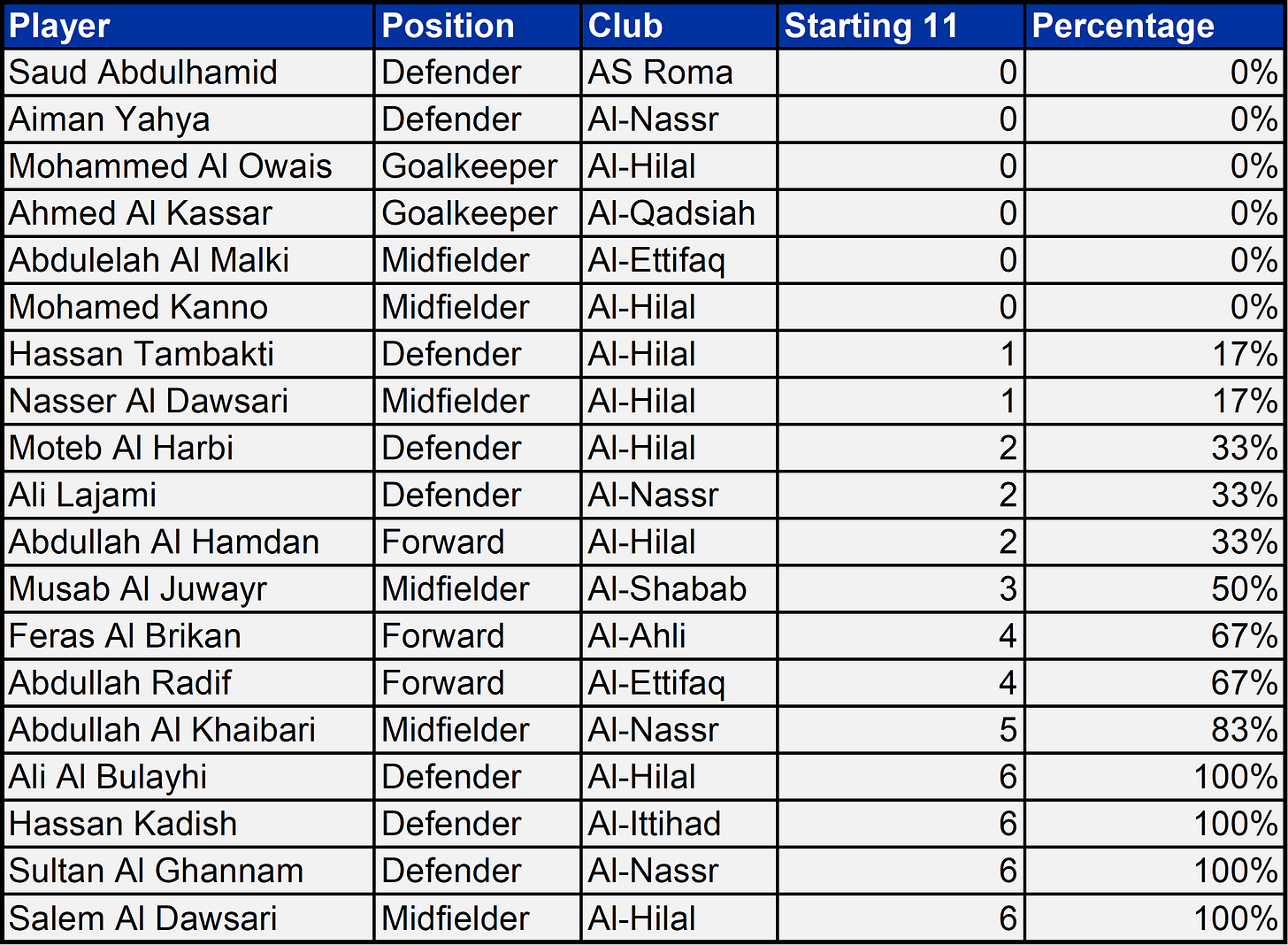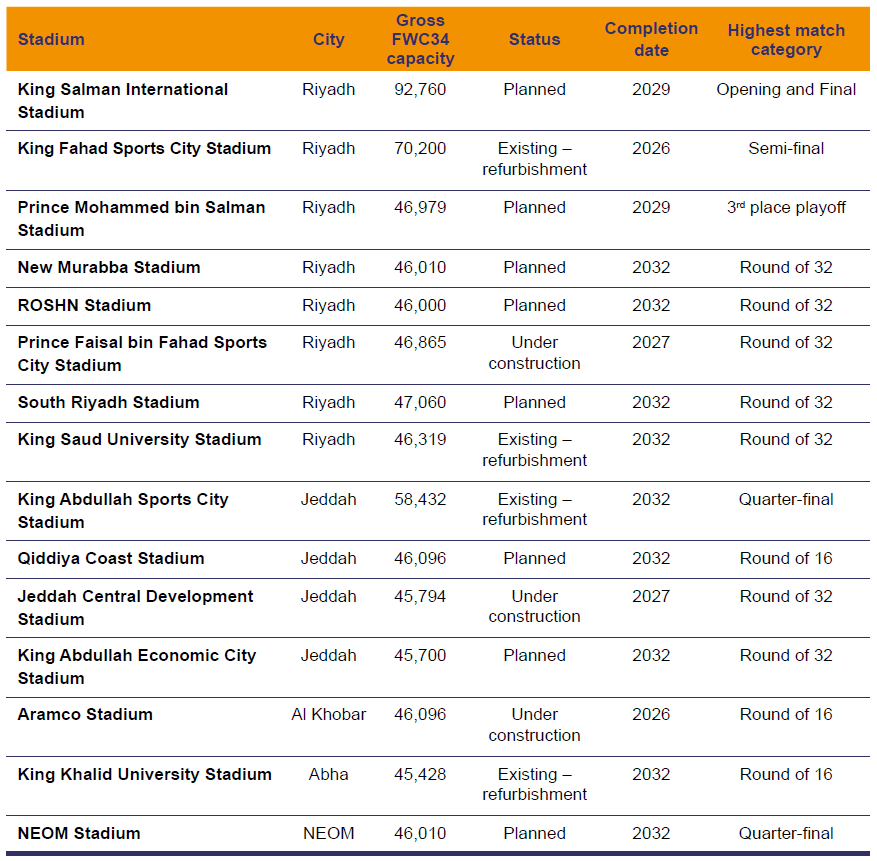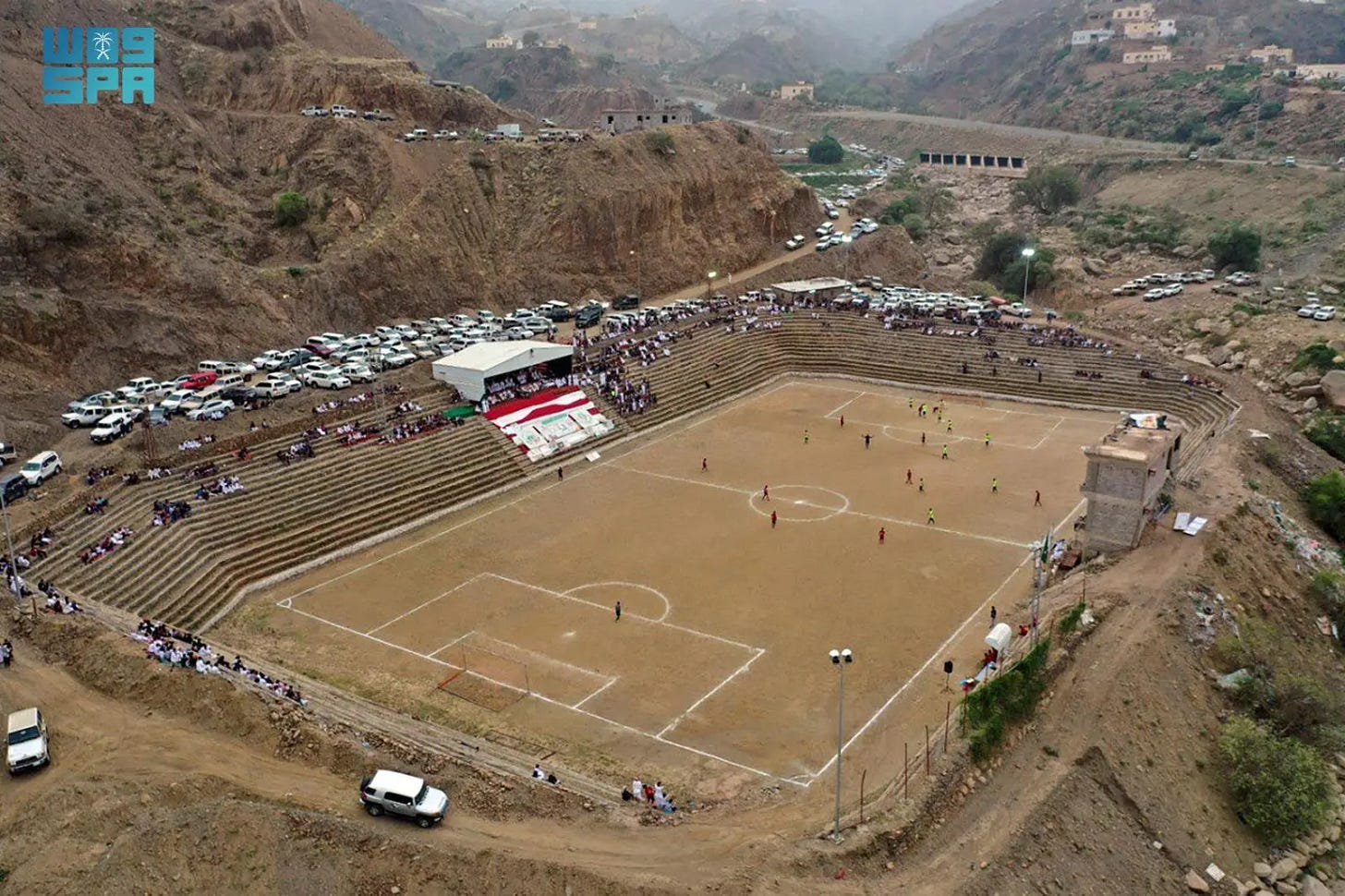[Top of Mind] When the Solution Is the Problem
Ticketing Fiasco
Oasis in the United Kingdom (UK)
U.K. is investigating Ticketmaster after Oasis tour prices surprised fans
“British regulators launched an investigation into Ticketmaster over its sale of Oasis tickets for the Britpop band’s upcoming reunion tour, including the company's use of ‘dynamic pricing’ that increases costs to fans.
This past weekend, a crush of fans waited in hours-long queues on the platform to buy tickets to the band’s tour next summer before finding that prices had risen while they were in line due to the dynamic pricing system that hikes prices based on demand.”
Coldplay in the Republic of India
“Fans eagerly awaiting the return of Coldplay to India were shocked to find tickets being resold online for as much as $11,000, prompting police to seek a statement from the CEO of the shows’ vendor over allegations of fraud.
Tickets were scheduled to go on sale by the official vendor, BookMyShow (BMS), at 12 p.m. local time on September 22. But for many users, the website and app crashed amid the demand.
When fans were able to get into the virtual queue to buy tickets priced from 2,500 to 35,000 rupees ($30 to $417), they said they were behind hundreds of thousands of users.
Within minutes, the tickets were sold out and reappeared on other platforms for as much as 960,000 rupees ($11,458), sparking anger over the purchase process and the suspected use of bots to scoop up seats.”
Al-Shorta in the Republic of Iraq?!
Matchweek 1 of the revamped AFC Champions League (Elite) pitted Al-Shorta (IRQ) against Cristiano Ronaldo’s Al-Nassr (KSA) in Baghdad, Iraq.
Fans wanting to see the “1 billion man” in action had to queue in the wee hours outside the designated ticket counters to buy physical tickets.
The retail ticket prices for the match started from IQD 10,000 (USD 8).
As the onsale day unfolded, ticket price for the Very Important Person (VIP) category in the black market soared from IQD 25,000 (USD 19) to IQD 150,000 (USD 114) (500% ↑), but when the news broke out that Ronaldo was not participating due to an illness, ticket prices in the black market plummeted to below retail.
Dynamic pricing IRL!
Does this incident in the home of the “Lions of Mesopotamia” aid dynamic pricing’s use case in event ticketing?
Why Oasis fans should welcome price-gouging
“But there is a difference between monopolistic behaviour and allowing prices to respond to demand. In fact, dynamic pricing ought to be good for fans.
In an ideal market prices reflect the willingness of consumers to pay. If Oasis tickets were sold for £20—roughly the amount that they cost three decades ago—many would be snapped up by people looking for a cheap night out, rather than genuine devotees. A fair portion would probably not turn up, because they were not that keen to see the band in the first place. The crowd might sing along to the hits but remain silent for the deeper cuts.
Economists favour responsive prices since they can ensure that both consumer and producer “surplus” is maximised: those who value the good or service most get their hands on it; the seller gets a suitable reward.
Well-meaning types might respond that high prices help only the rich. For a billionaire with a casual interest in a band, a price that is eye-watering for those who politicians call “ordinary fans” will be negligible. But addressing such inequality through cheap tickets is foolish, even if it does not reduce supply or create a flourishing black market. Those who happened to get to the front of the queue would, in effect, enjoy a randomly allocated transfer from the artist’s earning potential. Ordinary people with no interest in the event would receive no benefit. A better approach is to address inequality directly through the tax-and-benefit system.”
In other news, tickets for the Six Kings Slam event in Riyadh are being resold at 153% markup on the official ticketing platform.
Also, the minimum retail ticket price for the “Big Four” Saudi Pro League (SPL) match between heavyweights Al-Nassr and Al-Hilal has increased from SAR 70 (2023/24) to SAR 90 (2024/25) (29% ↑).
The annual inflation rate in Saudi Arabia reached 1.6% in August 2024, compared to August 2023. This is primarily attributed to the rise in the prices of housing, water, electricity, gas, and other fuels by 8.9%, as well as the increase in prices of food and beverages by 0.9% (Source).
Il Signore Mancini
Roberto Mancini concerned by lack of Saudi Pro League minutes for national team players
“Saudi Arabia manager Roberto Mancini believes the influx of foreign players to the Saudi Pro League is negatively impacting the national team's preparations for World Cup qualifying.
The Saudi Pro League has been transformed over the past 18 months, with numerous high-profile players now plying their trade in the kingdom, including Cristiano Ronaldo, Neymar, and Riyadh Mahrez. With most clubs using their full quota of 10 foreign players, Mancini has complained that local players are not seeing enough game time.
‘Saudi Arabia’s national team players must participate as core players with their clubs,’ said Mancini, who was appointed Saudi manager in August last year after a five-year stint in charge of Italy. ‘I have 20 players sitting on the bench in local matches.’
Mancini said there needed to be greater cooperation between the national team and clubs, as Saudi Arabia look to improve on their recent mixed form.”


Al-Hilal provides the most players to the national team’s starting 11, but the club fielded nine foreigners (in eleven starting spots) in its recent triumph against Al-Shorta in the AFC Champions League Elite.
Recommended Reading
Stadium Financing

Firstly, are there any emerging and successful funding structures for stadium construction around the world?
Innovation in Global Stadium Financing
“Due to high construction costs, public funding has been a critical avenue for stadium development in the United States. New financing structures are also emerging as the costs of construction increasingly require more capital. Instead of traditional project financing, some stakeholders are exploring mezzanine debt or other avenues like the securitization of future stadium revenues. Although this approach carries a different risk profile, it has been successful in specific situations, most notably for clubs like FC Barcelona and Olympique Lyonnais in Europe.”
“After running hundreds of financial models, Goldman came across an obscure Spanish rule that would allow the team to securitize what the bank calls ‘extraordinary revenue’ in the form of future sales of tickets, food, and beverages. ‘We were looking to securitize contracts that were not going to exist until the stadium is built,’ says Sonnenberg. ‘And that has not been done before.’
In practice, this means that FC Barcelona will be doing what cities like New York have long done when it comes to selling bonds backed by claims on future revenues. But instead of money from parking meters or bridge tolls, the soccer club’s creditors will have claims on sales of plates of patatas bravas and other Catalan nibbles found at Spotify Camp Nou. What matters most is that the arrangement involves no mortgage, and so the stadium is safe from foreclosure.
To bring the trust to life, FC Barcelona entered into a purchase and sale agreement with the Espai Barça Stadium Financing Trust, (formally known as the Espai Barça, Fondo de Titulización) and agreed to sell securities representing some of its rights, titles, and interests in future revenue. Twenty private placement companies, including a number of American insurance giants, bought 1.5 billion euros worth of the securities and will reap an average of more than $50 million a year annually for 23 years, paid out in five tranches.”
Jonathan Fascitelli leaves HBSE to form development company SEREGH
“In SEREGH’s relationships with team owners, money will move both ways. While SEREGH will financially support teams’ mixed-use development efforts around their venues (though not the venues themselves), team owners can contribute funds to other SEREGH partner mixed-use developments, too, benefiting from their successes as well. The length of SEREGH’s involvement in its owner partners’ development projects will vary by project. Masterplans will be developed over 7 to 10 years. Besides investing in teams’ mixed-use developments, SEREGH will provide capital to other developers, too.
SEREGH is stepping into a void that’s largely gone unfilled during the early days of the more sophisticated mixed-use development boom that’s overtaking sports right now. Real estate entities have dipped their toes into sports venue-adjacent development, private equity firms are providing capital, and plenty of consultants have emerged, but there are few if any developers born of the sports world. Most teams that engage in mixed-use development only do it once and don’t grow the in-house expertise needed for repeat success.”
Secondly, after the soccer stadium is built and the mega sporting event is hosted, how will the stadium owner and operator ensure that it does not become a white elephant? What about the status of existing soccer stadiums hosting matches?
“The Montreal Olympic Stadium that hosted the 1976 Olympic Games became known as a famed white elephant that took 30 years to pay off.
Previous soccer World Cup hosts are still shelling out, too.
After South Africa spent $1.1 billion on its 10 stadiums for the 2010 tournament, half of which were new, many were later left unused or underused. This proved highly expensive for city councils left footing the bill and ended up bleeding taxpayer money.
The $600 million Cape Town Stadium offered a spectacular view of Table Mountain, but for a hefty price. It has reportedly cost taxpayers in the region of $3.5 million a year, but legacy problems were partially resolved by sharing with the city’s Stormers rugby team and hosting international rugby games.
Brazil spent nearly $4 billion building and renovating venues for 2014. Four cities in Brazil were left with underused stadiums like the $550 million Mane Garrincha in Brasilia, which even hosted one game with just 400 spectators. The 46,000-capacity Arena Pernambuco in Recife does not have a team.
Russia’s $10.8 billion World Cup price tag was inflated by loss-making arenas with high yearly maintenance. Of the 12 stadiums from 2018, only eight host top-tier matches, generally with tens of thousands of empty seats, except at Zenit St. Petersburg and Spartak Moscow’s stadiums.”

Jogo Bonito, NFL?!
Eagles Players Feared Crime in Brazil. Have They Considered Philadelphia?
“Some N.F.L. players called Brazil dangerous ahead of the league’s first game in South America on Friday. Statistics show their home city is deadlier.
Last year, São Paulo registered 4.2 murders per 100,000 people, one of the lowest rates in Brazil. In Philadelphia, the murder rate was six times as high, at 26.1 per 100,000 people, even surpassing the murder rate of 23.1 across Brazil, according to the Homicide Monitor, a database of government statistics from the Igarapé Institute, a research institute that studies security.
And it is not just Philadelphia. Most cities with N.F.L. teams had higher murder rates, and some much higher. São Paulo had less than a third of the murders per capita as the following N.F.L. cities, starting with the highest rate: New Orleans, Baltimore, Cleveland, Detroit, Washington, Kansas City, Cincinnati, Atlanta, Indianapolis, Chicago, Minneapolis, Dallas, Buffalo, Houston, Nashville and Jacksonville.
The fears of traveling to Brazil even sparked some confusion among players. Josh Jacobs, a Packers running back, said in an interview in June that the teams could not wear green in Brazil because of gang-related issues with the color.
In reality, the São Paulo soccer team Corinthians asked the Eagles to refrain from wearing green in its home stadium — where Friday’s game is being played — because the Eagles are technically the home team and green is the signature color of Corinthians’ archrival, Palmeiras.
The Eagles will wear black and white, like Corinthians, and the Packers will wear green.”
Perhaps an opportunity for cities in the Gulf Cooperation Council (GCC) region such as Abu Dhabi, Doha, and Riyadh to capitalize?
It should come as no surprise that the NFL is considering to host a regular-season game in Abu Dhabi, the safest city in the world.
LinkedIn Posts
Source [X (formerly Twitter)]: AlrabiaSportsTV
Source [X (formerly Twitter)]: SkyFootball



